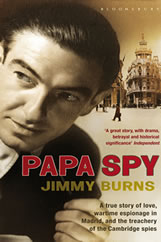An article in today’s influential Spanish newspaper El Pais by its respected Rome correspondent Pablo Ordaz suggests than not all has been is peace and love in the current Vatican press corps while in Cuba.
Commenting on the Pope’s visit to the island, Ordaz comments that it has been notable for its low-key and- in Ordaz’s view- disappointingly weak reaction to the Castro regime’s human rights record which showed its darker side when anti-regime leaflets were scooped up by security police, dissidents were prevented from getting anywhere near Pope Francis, and some were arrested.
Ordaz contrasts Francis’s softly softly approach in Cuba with his outspoken pronouncements on other political issues like global warming, migration, poverty, and capitalism which have certainly provided the media with more eye-catching headlines and earned Francis the reputation of a radical.
My Spanish colleague does not mention that his most direct political message in Havana was aimed at Colombia, exhorting its government and Farc rebels to carry on with peace talks. In part this was a veiled pat on the back for the Cuban regime which, together with the Vatican, has been helping mediate between the two sides. It was also a reminder that in the more than fifty years that have passed since Castro and his band began to export his ‘revolution’ to other countries in Latin America and Africa, Cuba has been defused, posing less of a risk to global harmony.
In fairness , the Pope’s message to the thousands of pilgrims in Havana’s Revolution Square — “Service is never ideological; we do not serve ideas, we serve people” — was, in its context, wilfully and characteristically bold given the Castro brothers’ Marxist-Leninism and past tendency to rule by decree. With many Cubans being given access to instant Wi-Fi coverage and communication involving the outside world for the time in their lives- part of Cuba’s opening to the world, which Pope John Paul 11nd called for during his visit back in 1998.
But Pope Francis was evidently on more of a spiritual than a political mission to Cuba and we saw an important outcome in the experience of Cuban state TV explaining in great detail the Catholic mass to its viewers-this in a country where the regime tried to relegate religion to minor status after the Revolution.
Fidel Castro’s encounter with Pope Francis isn’t Castro’s first gesture of reconciliation with the Catholic faith that educated him as a schoolboy- — the Cuban ruler broke the ice with John Paul II — but the “informal and friendly” conversation this Pope had with the man who embodies the Cuban revolution was still a remarkable instance of how times have changed for Cuba and for the Church.
One was also reminded of Castro’s prediction years ago that Cuba would only reconcile itself with the US when a black president was in the White House and a Latin American was Pope. He might have added that having been educated by the Jesuits, it would take a Jesuit Pope to finally bring Fidel back into the Catholic faith.

